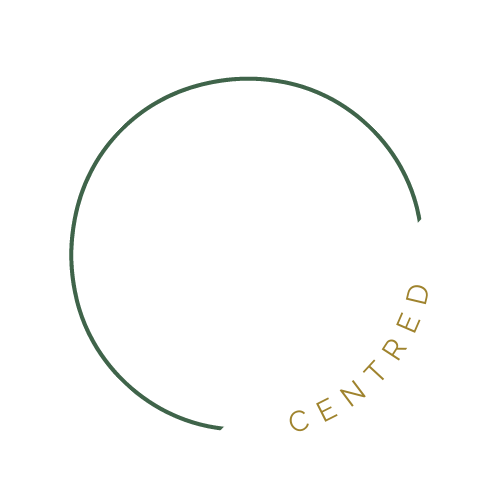– Unlocking health, clarity, and resilience
Fasting is often framed as a modern biohacking tool, a way to sharpen focus, increase longevity, and optimise metabolic health. Yet, fasting has been an integral part of human history for thousands of years. From the spiritual fasts of ancient civilisations to the healing protocols of traditional medicine, fasting has long been revered as a means of physical, mental, and spiritual renewal.
Today, as cutting-edge research confirms the profound effects of fasting on cellular repair, brain function, and disease prevention, we find ourselves rediscovering what our ancestors instinctively knew—that strategic periods of abstinence from food are deeply restorative. The key lies in understanding how historical fasting traditions can inform our modern applications, allowing us to integrate both ancient wisdom and scientific advancements to achieve true vitality.
Fasting in Ancient Civilisations: The Root of Healing and Enlightenment
Ancient Egypt: Fasting for purification and longevity
The ancient Egyptians were pioneers in recognising the power of fasting. For them, fasting was a means of both purification and spiritual enhancement. Priests and healers observed fasting regimens to prepare themselves for sacred rituals, believing that abstaining from food made them more receptive to divine wisdom. Egyptian medical texts, such as the Ebers Papyrus, one of the oldest medical documents in existence, show that fasting was frequently recommended as a remedy for conditions like digestive disorders, skin diseases, and inflammation.
Interestingly, Egyptian healers may have understood the process of autophagy—the body’s natural method of cleaning out damaged cells—long before modern science could explain it. They prescribed fasting not only for detoxification but for the maintenance of vitality and youthfulness. Today, this principle is validated by Nobel Prize-winning research on autophagy, showing that fasting helps the body clear out damaged cells, a process crucial to health and longevity.
Ancient Greece: Fasting as medicine
The Greeks took fasting beyond its spiritual and ritualistic aspects and applied it systematically as a method of healing. Hippocrates, often called the “Father of Modern Medicine,” is quoted saying, “To eat when you are sick is to feed your illness.” He advocated fasting as a way to treat a range of ailments, from digestive issues to mental disturbances, recognising that healing happens most effectively when the body is not burdened by digestion.
Greek philosophers such as Pythagoras also understood fasting as a means of enhancing mental clarity and intellectual capability. Pythagoras required his students to undergo 40-day fasts before entering his school, believing that fasting sharpened the mind. Plato and Socrates were known for their extended fasts, and even Aristotle spoke of fasting as a tool for cultivating discipline.
Modern neuroscience now confirms that fasting boosts brain-derived neurotrophic factor (BDNF), a protein crucial for cognitive function, memory, and learning. Ancient Greeks were ahead of their time, intuitively recognising the mental and physical benefits of fasting long before science could explain the mechanisms behind it.
India: Fasting as a path to physical and spiritual liberation
In India, fasting has been deeply ingrained in both spiritual and medical traditions for thousands of years. Ayurveda, the world’s oldest holistic medical system, recommends fasting as a way to detoxify the body, balance the doshas (biological energies), and rejuvenate organs. The practice of Ekadashi, a lunar fasting cycle observed in Hinduism, is said to enhance cellular renewal and promote longevity. This form of fasting is observed by many Hindus twice a month, believing it aids in achieving a higher state of consciousness and spiritual purity.
Jainism, another ancient Indian religion, practices fasting in an extreme form, sometimes with devotees consuming only water for weeks at a time. However, this fasting tradition is not solely an act of asceticism—it is tied to detoxification, the cultivation of higher consciousness, and the belief that fasting accelerates karmic purification. Modern research supports this belief, with studies showing that fasting can indeed promote mental clarity, enhance mitochondrial function, and reduce inflammation—all of which contribute to a more holistic form of wellness.
Fasting in religious and spiritual practices: The pursuit of higher states
Christianity and biblical fasting
Fasting has long been central to Christian tradition, from the 40-day fast of Jesus in the wilderness to the fasting practices of early Christians. In biblical times, fasting was not just about self-discipline; it was considered a tool for spiritual breakthrough, clarity, and divine connection. Biblical figures such as Moses, Elijah, and Daniel used fasting as a means to prepare for encounters with the divine.
What is particularly striking is how modern research on fasting aligns with biblical teachings. Scientific studies now confirm that fasting activates genes linked to longevity and resilience. The biblical practice of fasting as a tool for renewal and restoration is validated by modern science, showing that fasting can trigger profound biological processes that lead to healing and regeneration. This crossover between ancient spiritual wisdom and modern health science demonstrates fasting’s power to heal and uplift.
Islamic fasting: Ramadan and beyond
The fasting practices of Ramadan in Islam are perhaps the most widely recognised spiritual fast in the world. During this holy month, Muslims fast from sunrise to sunset, refraining from food and drink not just for physical purification but also for self-discipline, empathy, and gratitude. This practice highlights the deep connection between the body and spirit.
Interestingly, fasting during Ramadan bears striking similarities to modern intermittent fasting protocols. Research indicates that time-restricted eating, where food intake is confined to a specific window of time, improves metabolic health, insulin sensitivity, and gut function. Studies have shown that fasting during Ramadan reduces markers of inflammation and can even improve cognitive performance, echoing the spiritual and physical benefits of fasting recognised over 1,400 years ago.
Fasting for healing: What ancient practices teach us about modern health
In ancient cultures across the globe, fasting was not just a practice for spiritual enlightenment but also for physical healing. Whether in Egypt, Greece, Ayurveda, or Chinese medicine, the principle was the same: when digestion is paused, the body redirects energy towards healing and repair.
Modern studies now validate the powerful healing effects of fasting:
- Immune System Regeneration
A study led by the University of Southern California found that prolonged fasting cycles not only protect against immune system damage but also induce immune system regeneration by shifting stem cells from a dormant state to a state of self-renewal. This process involves a reduction in the enzyme PKA and levels of IGF-1, a growth-factor hormone linked to aging and tumor progression (University of Southern California, stemcell.keck.usc.edu). - Cancer Treatment Support
Research indicates that fasting can enhance the efficacy of chemotherapy while protecting healthy cells from its toxic effects. Fasting reduces levels of insulin-like growth factor 1 (IGF-1) and glucose, leading to decreased signaling through nutrient-sensing pathways. This metabolic shift promotes stress resistance in normal cells and sensitizes cancer cells to treatment (Longo & Mattson, Proceedings of the National Academy of Sciences, pmc.ncbi.nlm.nih.gov). - Autoimmune Disease Management
Studies have shown that cycles of fasting can reduce systemic inflammation, a key factor in autoimmune diseases such as rheumatoid arthritis and multiple sclerosis. Fasting modulates immune cell function and promotes hematopoietic stem cell activation, leading to the regeneration of immune cells and a reduction in autoimmunity (Choi et al., Cell Reports, pmc.ncbi.nlm.nih.gov).
These findings are a testament to the profound healing potential of fasting—a concept that ancient cultures embraced long before modern science could uncover the mechanisms at play.
Bringing ancient wisdom into the modern world
Integrating ancient fasting wisdom with cutting-edge science offers an exciting opportunity to enhance modern health practices. By incorporating intermittent fasting to support metabolic health and cognitive function, observing seasonal fasting to align with the body’s natural rhythms, and engaging in prolonged fasting for deep cellular repair and immune regeneration, we can harness the healing potential that both ancient and modern traditions offer.
Incorporating fasting as a lifestyle, not just a short-term intervention, offers a holistic approach to health. It is not about deprivation but about aligning with the body’s natural rhythms and maximising its inherent healing powers. Understanding this balance between ancient practices and modern scientific insights allows us to unlock new pathways to health, vitality, and longevity.
Conclusion: The timeless power of fasting
Fasting is not a fleeting trend—it is a profound and timeless practice that transcends cultures, religions, and medical systems. It is a biological necessity, a healing tool, and a spiritual discipline that our ancestors deeply understood. Whether for detoxification, longevity, or enlightenment, fasting has always been a means of transformation.
Now, as modern science catches up with ancient wisdom, we have the opportunity to use fasting not just as a reactive health tool, but as a proactive strategy for optimal living. By embracing fasting as a lifestyle, we honour the intelligence of the body, reconnect with ancestral traditions, and step into a future of greater health, clarity, and resilience. In an age where we are constantly bombarded with an overload of food, environmental toxins, and a relentless stream of information, fasting offers a powerful tool to reset our systems and regain a sense of control. It provides us with a necessary pause, enabling our bodies to detoxify, our minds to refocus, and our spirits to recalibrate. In the modern world, where excess and distraction often cloud our well-being, fasting serves as an anchor, helping us restore balance and cultivate the resilience needed to navigate the challenges of today’s fast-paced, overstimulated environment. Through fasting, we gain the clarity and strength to deal with the noise and demands of the modern world, aligning ourselves once again with the natural rhythms that promote true health and vitality.

